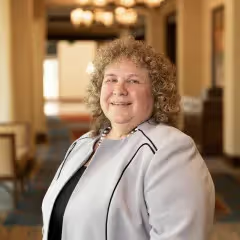College, Career, Military: OH MY! What is the counselor's role with CCMR?
Feeling a little overwhelmed by the twists and turns of CCMR? You're not alone! If you missed our recent webinar with Melisia Foster, Director of Curriculum and Instruction at Mineola ISD, don't worry - we've got you covered.
In this insightful session, Melisia and our VP of Educational Outreach, Dr. Kim Tunnell, explored the complexity of CCMR and the pivotal role school counselors play in shaping students' futures.
Can you give us an overview of CCMR and some of the new specifics?
Melisia: In Texas, CCMR stands for college, career, and military readiness. We have the college readiness piece, where, if you meet the indicator on AP tests or you score a 4 or higher on the IB test, then you can earn a college readiness point. The TSI, Texas Success Initiative, is the overarching testing component, which is composed of SAT, ACT, and then TSI. You can meet the college readiness scores in reading or math, and you can use one from each section. For example, if the student scores well in the SAT reading, and then the TSI math, then you can count that together.

How do we get counselors up to speed on CCMR? What is their role?
Melisia: I think that counselors need to go above and beyond in their education when it comes to CCMR. One of our jobs as counselors is to make sure we equip students with the skills and readiness to thrive in a post-secondary world, whether that's college, career, or whatever path they choose. We also have to find the balance between the accountability piece and doing what's best for students.
A good place to start is developing high performing programs from head start all the way to 12th grade. Going into the classrooms, figuring out what the kids' strengths and weaknesses are, providing career exploration, and showing what this looks like in real life are all crucial. This can be done through activities, speakers, career days, and college fairs.
Providing at-risk support is another critical component. You must make sure that you're supporting those kids who are struggling academically, or even with decisions about what they want to do in those next steps.
What are some specific things that you all have done to assist with coaching students and formulating that graduation plan that's required of 8th graders?
Melisia: We start early with our career exploration piece at the lower grade levels. We know we need to be more intentional with our younger kids, like going beyond the “College T-shirt Day” and having deeper conversations about what that T-shirt really means. In many cases the students only know about the college experience or the job experience from their immediate family members. We want to expose them to more experiences and opportunities.
We also use our practicum students to open car doors for our primary students. This is another great conversation starter with the kids. When you have FFA members in their official dress or health science students in their scrubs opening doors, it sparks curiosity at the lower levels and outside of the formal classroom lessons.
At the middle school level, we focus on career exploration. We also use our practicum students for this purpose, having them go into those middle school CTE classes and visit with those students. We also have a day where we bring the middle school students over to rotate through all our CTE programs. Soon after, we have a parent night at the 8th-grade level, where we go through high school expectations and let parents tour our CTE programs. We're trying to build that excitement for our programs like, 'Hey, mom, I saw what a welding machine actually looks like. Let's go look at that, because I think that's what I might want to take in high school.'"

How do the counselors at the high school guide the CCMR process with all their other responsibilities?
Melisia: When I was a campus counselor, I had to organize all the data from all those data sources into a spreadsheet. It was a lot of work to hand enter all that information. But it was better for me to have it all in one place than having to look over here for the SAT scores, look over there here for the dual credit, all because I wanted to be able to quickly look and see, 'Melisa Foster has this, this and this, and so she's on track where she needs to be, or I need to have a discussion with this child.'
I will tell you that switching to Pathways and having a dashboard with all that data automatically show up in one spot has been such a blessing to our campus counselors. I wish that it was available when I was having to hand enter data into all of the spreadsheets, but I definitely appreciate that this is an option for them now.
What other key strategies do you recommend for counselors and administrators regarding CCMR?
Melisia: The more knowledge you have, the better decisions that you're going to make regarding CCMR and how to help kids. We must find that balance between what we know helps kids versus where we want to be accountability wise, because CCMR can impact high school level campus accountability. Knowing where you are in these areas is very important.
Also, knowing and helping your PEIMS person is important because a lot of this is reflective of whether or not the data is put into PEIMS correctly and in the right places. Everything that you're doing on the counseling side for CCMR could look wonderful, but it's not going to be reflected on the accountability side if your PEIMS data isn’t right.
What have you found to be effective for tracking these different data pieces?
Melisia: If you don't have a platform like Pathways, then you're going to have to build a spreadsheet that works for you. It's really about how much time you want to devote to that task, especially considering the 80/20 rule for Texas school counselors.
Ready to simplify your CCMR tracking and empower your students for post-secondary success?

More Great Content
We know you'll love




